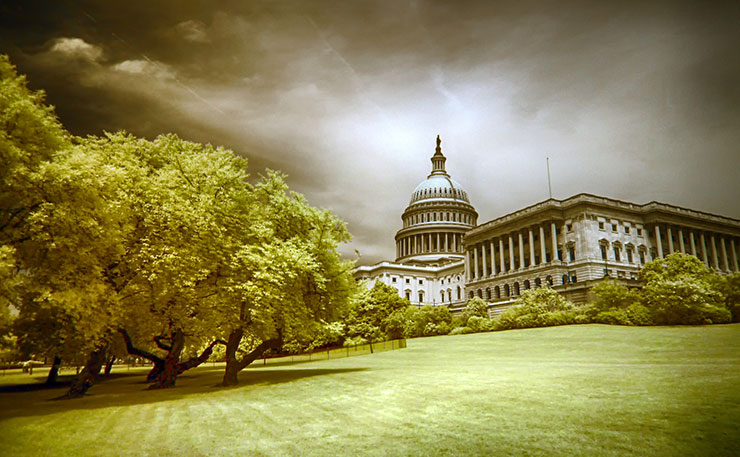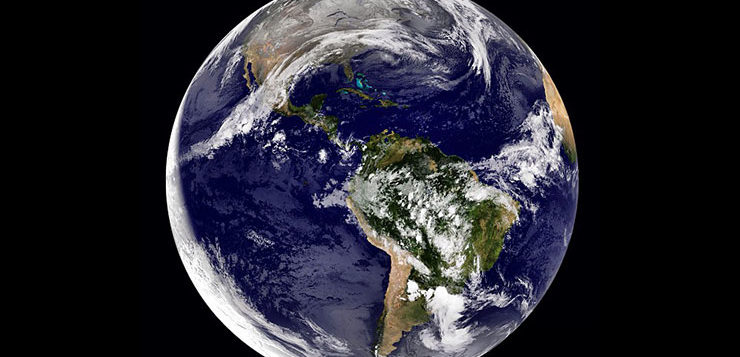It’s all well and good to celebrate environmentalism, but when corporates move in on the action, something else is going on. Greens Senator Senator Lee Rhiannon explains.
I don’t wish to belittle Earth Day, annually celebrated on April 22. Many critical environment protection campaigns will be highlighted on this special day. But there is a problem and it is not just with the growing corporate involvement in this annual event.
US evolutionary biologist Rob Wallace provides an insight into so-called corporate “remedies” to these crises – “environmental destruction has been stitched into the fabric of capitalism’s metaphysics from its very beginning… what’s still left [of the environment]becomes more valuable [and]the resulting competition turns only fiercer, pursued under the guise of ‘saving the environment’”.
Surely it’s time we used Earth Day to question the very system that is causing such environment and social devastation, otherwise how can Earth Day achieve its objective to protect the planet?
Earth Day has wonderful origins. It started out as a people’s movement in the US. In 1970, its first year, it’s estimated 20 million people on April 22 took to the streets, parks, meeting halls and public places to take a stand for the environment.
The modern environment movement overnight had massive influence. The US Congress passed the Clean Air Act, Clean Water Act and Endangered Species Act because of people power. Actions for the environment quickly took on global significance.

The role of Earth Day has diminished over the years. Corporations have moved in to use the date as a vehicle for green branding. In 1990 Hewlett-Packard, at the time the second-biggest emitter of chlorofluorocarbons in Silicon Valley, became a member of the Earth Day Board.
In coming days we can expect to hear Earth Day pledges from companies on how they plan to reduce their carbon footprint, offset the air travel of their CEOs and fund rescue programs for endangered animals.
Companies use Earth Day as a springboard to highlight these sorts of greenwashing programs as they know it’s good for their reputation. Token changes to company operations that might impact the environment can lift a company’s credibility and this can help boost profits. But what is this doing to our planet.
The consequences of neoliberalism are most profound when examining the destruction of the environment, on which all life depends. The ideology of neoliberalism assumes that the resources of nature can be exploited without concern for the consequences.
With the demand for ever-greater growth in economic terms, the exploitation of the Earth’s natural resources has reached dangerous levels and this danger now extends to those working on the front line for environmental protection.
It is now estimated that wildlife rangers, Indigenous leaders and environmental and human rights activists are dying at the rate of nearly four a week. Women account for more than half of the dead and agribusiness now rivals mining as the deadliest sector.
The killings of those taking a stand for their land and their environment have risen fourfold since the list of names of those killed was first compiled in 2002. Most of these deaths are occurring in low-income countries with people marginalised, exploited and largely excluded from governance processes bearing the brunt of the attacks.
Most of those killed die in areas impacted by mining, big dams, massive agribusiness operations and illegal logging. We need to see these deaths in the context of the greenwashing that many companies engage in.
Professor Subhabrata ‘Bobby’ Banerjee, at the University of London’s Cass Business School, is studying resistance to global development. His observations highlight the interconnection between environmental and social campaigns. “Capitalism is violent and global corporations are looking to poor countries for access to land and resources. Poor countries are more corruptible and have weaker law enforcement. Companies and governments now work together to kill people.”
The aim of corporations that publicise their environmental credentials, as many will be this coming Earth Day, is often to distract attention from activities that are socially damaging.
Environmental groups need to be wary of this trap. There is no justification for congratulating individual companies for their action for the planet if the operations of that company robs Indigenous people of their land, kills activists, creates wastelands and other crimes against humanity and the environment.
Failing to challenge a system that relies on such ruthless exploitation allows corporations to foster a belief that they are responsive to change when in fact their overall actions are most likely damaging to the environment, people’s health and well-being and individuals might be killed for taking a stand for their rights and their land.
The current experience of farmers in India illustrates the results of the exploitative practices of large corporations. Many poor farmers have been required to apply repeated doses of chemicals provided by agribusinesses like Monsanto in order to increase crop production.

The impact is that the soil increasingly becomes infertile. Poor farmers unable to grow sufficient crops to feed their family, or even to pay the outstanding debt to the pesticide corporate provider, are committing suicide in frighteningly large numbers. The flow-on effects of the use of these poisons, always portrayed initially as harmless, turn out to be anything but harmless, and serve to destroy not only the immediate ecosystem, but the health and lives of those humans that have been forced to depend on them.
Sadly this is the essence of capitalism. Profit-making drives investment and wealth accumulation that gives rise to the economic, social and environmental crises that increasingly dominate our planet.
The assumptions and values of a neo-liberal business model – based on the belief of endless growth, increased profits and individual competition – have poisoned our planet almost beyond repair. We must act urgently if we are to continue to live, and to live in harmony with each other and with our precious environment.
Capitalism, or any system that relies on unsustainable use of resources, will be destructive of the planet. It is time that respect for our natural environment, and its role in nurturing all life is recognised as an essential starting point for all decisions on how our society and economy operates. That is essential if Earth Day is to achieve its objective and continue to be worthwhile.
Donate To New Matilda
New Matilda is a small, independent media outlet. We survive through reader contributions, and never losing a lawsuit. If you got something from this article, giving something back helps us to continue speaking truth to power. Every little bit counts.





